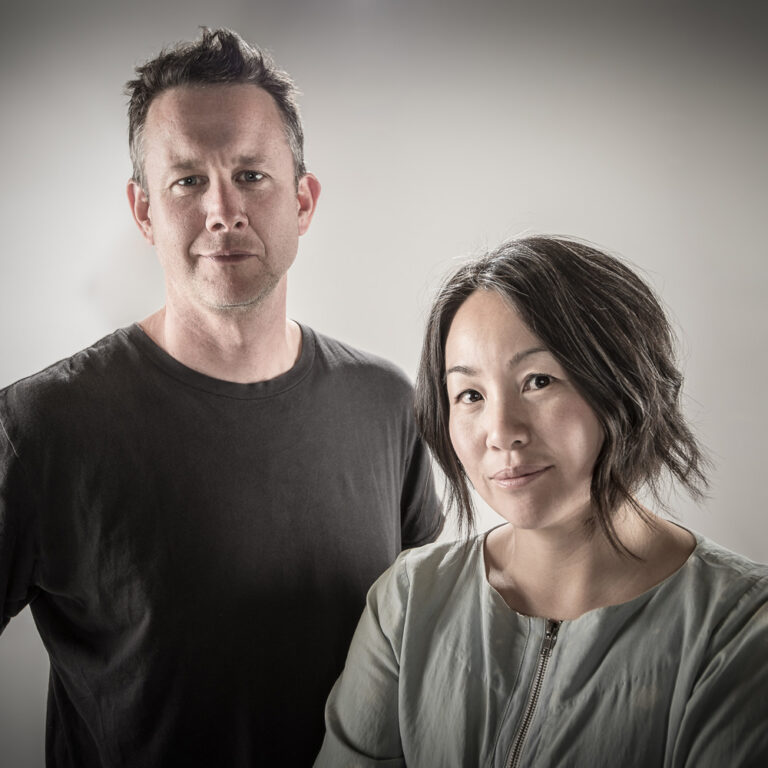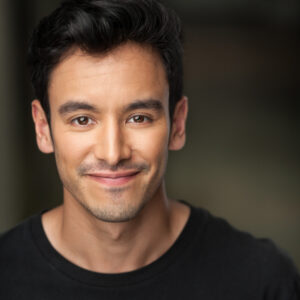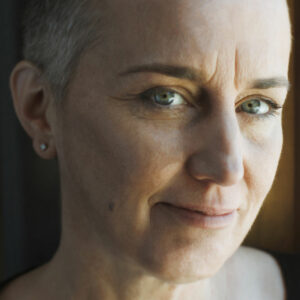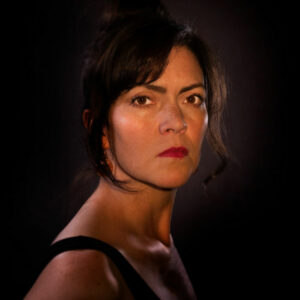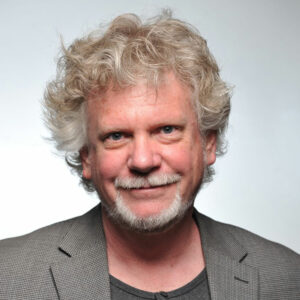Maiko Yamamoto and James Long
Laureate, 2019
Image: Name, Title, Description
01
2019 Laureate
For over 20 years, Maiko Yamamoto and James Long have been making experimental, intercultural and interdisciplinary works of theatre. Whether working together or apart, the pair use extended processes to create performances from intentionally simple beginnings with both new and existing collaborators. Their work is about a genuine attempt to coexist. Conversations, interviews and arguments collide with Yamamoto and Long’s aesthetics, resulting in theatrical experiences that are authentic, immediate and hopeful.
They founded Theatre Replacement in 2003. The company’s work has been presented in 43 cities and venues across the world. As freelance artists, they have directed, written, taught and created performance with a diverse range of companies and institutions.
Both are graduates of SFU’s School for the Contemporary Arts Theatre Program. Yamamoto has a Masters of Applied Arts in Visual Art from Emily Carr University of Art & Design, and Long holds a Master’s Degree in Urban Studies, also from SFU.
Photo by Stephen Drover.
Acceptance Speech
First and foremost, we would like to offer our heartfelt thanks to Lou and Kathy Siminovitch, the Siminovitch family and friends and the Siminovitch Prize Board for creating and continuing this remarkable award — one that recognizes and celebrates Canadian theatre makers at such a critical moment in their careers.
We are deeply honoured to be this year’s laureates. We feel proud to have been nominated alongside such amazing artists — artists whom we greatly respect and admire. To Ravi, Christian and Christian — thank you for the work you do, and for continuing to be the artists we look to to inspire and provoke us.
And our thanks to the Siminovitch Prize Jury: Vanessa, Marie, Émilie, Bobby and Adrienne, for all the work that went in to what must have been a very complicated decision, and for opening the conversation up for the first-ever co-nomination of the Siminovitch Prize.
We would also like to extend our deepest thanks and admiration to our friend and colleague, Anita Rochon, for having the vision to first suggest, and then put forward our names as co-nominees. And to Cindy, Veda, Kris, Peter and Conor for writing such fine and generous letters.
And thank you to our team, past and present, at Theatre Replacement. And always and forever, a humble thank you to our respective partners Nicky and Kevin for supporting us through our artistic obsessions, frequent travel and the fact we as a creative pair often spend as many waking hours together as we do with them.
Thank you. Merci.
We are two artists who stand here together today, because over 20 years ago we committed ourselves to the challenge of making performances that replaced the theatre that we were largely seeing around us at the time. Theatre that we couldn’t recognize ourselves inside of. We met this challenge through allowing our individual experiences, perspectives, interests, histories and beliefs to come together and collide inside of our processes. The collision was exciting — and we quickly discovered it made the work better. It was also a key way in which we could really support each other and our growing practices as two very different artists: one female identifying, one male identifying. One Japanese Canadian, one Waspy-Hybrid Canadian. There are also differences to us that are not so apparent: our upbringings, our relationships, our politics, our families. In the work we’ve created together and apart, these complexities are called out and celebrated in numerous ways because we believe this makes our work speak to as many people as possible and look like and reflect the place we come from.
It is a curious thing to stand here and receive a prize in ‘theatre’. The Canadian prize in theatre. And one that originates in central Canada, which as a place and an idea, remains a distant reality for us in Vancouver. We have always situated ourselves as outsiders and ‘theatre’ as a word and form has felt like something separate, removed or sequestered on a stage. Something that asks for a suspension of disbelief rather than an interrogation of it. Something that in its content and construction privileged certain voices and methods — methods that, once again, feel far away from the place we work.
We are a product of place, and while it may be a false or lingering mythology, Vancouver still functions and identifies as an alternative one. A petri dish of new-comers and wanderers and escapees. A place of small independent companies making things in an environment free of the institutions and traditions of central Canada. It could be said that we make work like nobody’s watching and perhaps it is because of this anonymity that we, as a community of artists and companies, have remained immensely supportive of each other in both our failures and successes.
There are far too many comrades and members of our community to name individually. To the Progress Lab companies, we salute you.
To Norman Armour, Heather Redfern and Cory Philley, there is absolutely no way we would be here today if it were not for your constant support and faith in our experiments. In many ways, we are just a couple of working class kids who have always just got up and gone to work, day after day. Each of you showed us how to do that while never taking anything for granted. Thank you.
And to Ker Wells, who left us far too early, and who was one of our first mentors and directors, and had a big hand in setting us on the path of experimental creation, we miss you.
We believe in experimental practice because by nature it alters the existing structures of a process, or a studio, or a public site. It challenges the dominant ways of being and thinking. It breaks with the traditional. It allows us to create new ways to be together, and to connect. Add to this a process that is shaped through purposeful collaboration, and you can imagine that the rooms we work in often look more like a laboratory than a rehearsal hall.
Because we choose to collaborate the things that separate us as artists and people — things that all too frequently pit people against each other — are the exact things that allow us to rise up and connect.
Because we collaborate, I had a place to make my own work and to find that my individual experience of the world had value. The stories I wanted to tell were centered as opposed to marginalized. They drew strength and grew relevance through the care of collaborators who were equally invested in them.
Because we collaborate I have been invited into conversations that demanded I interrogate my own privileges as someone occupying this body and history. To challenge my small town Ottawa Valley perceptions and attend to the stories and experiences of the people I worked alongside of.
Collaboration has always been our strength. And as much as it is a gift and makes sure we get a lot done, it’s not easy. It often means shutting your mouth and having your heart broken, giving more than you take and also fighting for things no one else can quite yet see. You can feel like the thorn or the hero. It requires generosity. It takes courage. And it takes time.
Our choice to build a shared practice led by experimentation and collaboration with each other, and with the artists and people we have been lucky to work with, defines who we are as directors. It has given us numerous opportunities to share the stories of others who might also feel like their experiences have value, or who want to be invited into conversations.
And so the biggest thanks go to each other. For as much as we’ve shaped what we’ve done, it has shaped us. It has made us the artists, the people, the friends, the parents, the mentors and the directors we are today.
To you Maiko, I thank you for your honesty and patience and continued compassion.
For your persistent practice of gratitude, for teaching me how to say thank you. For demonstrating how kindness can accomplish as much as provocation and for being my closest and most complicated friend.
And to you Jamie, for always challenging me to be better and harder and to not settle for less. For being my biggest cheerleader and also my toughest sounding board. Your friendship has been one of the most meaningful of my life.
We hope to stand here as evidence of dedication to a craft and form of expression we have chosen to build our lives around. And we also stand here as evidence of our own privileges. We run a publicly funded company. We do it in a city that is becoming impossible for our fellow artists to live. We do it during a climate catastrophe, and we continue to do it on the unceded territory of the Coast Salish Peoples.
So, with these privileges, privileges that in no small part have resulted in us being up here tonight, also comes a responsibility to seek out and support deeper dialogues and new, or at minimum, better conversations about our histories and our potential futures. Some of these conversations will be straightforward, fast and immediately satisfying and some will be enormously difficult. You might have to shut your mouth and have your heart broken. You may have to say things no one else wants to hear. You may have to give, or even give back, more than you take, but we will move forward.
Our work is about a genuine attempt to co-exist.
We wrote these words years ago and we return to them time and time again as a manifesto — a guiding principle that we hold ourselves to throughout any given creative process.
Being honoured by this prize helps confirm that our investment in the meaning behind these words has been worthwhile. It also reassures us to go further in our efforts; to encourage our many collaborators, colleagues and audiences to do the same, and perhaps most importantly, to empower and challenge the next generation of artists to take this idea to new places we could never have imagined.
And so on behalf of both of us, and from Vancouver, we say thank you so much again — merci beaucoup — for this incredible honour.
It is one we don’t take lightly, and it makes us very excited for what’s ahead.
Onwards.
And now, it gives us great pleasure to introduce you to our chosen protégé, an artist whose work by nature — in both the forms he’s innovating, and the content he’s proposing — looks to create completely new territories for Canadian theatre. Please welcome to the stage, Conor Wylie.
2019 Protégé
02
Simi News
Subscribe today to the monthly e-newsletter.
> Be the first to know about current artistic projects of the Siminovitch Prize community.
> Learn about emerging artists who are shaping the future of Canadian theatre.
> Stay informed about upcoming opportunities and calls for nominations.
